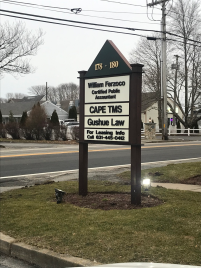NEWS & RESOURCES
Legal News & Tips
Massachusetts Homestead Act Protects Against Prior Debts
Chapter 188 of the General Laws of Massachusetts governs homesteads provides all owner-occupiers of principal residences with an automatic $125,000 “homestead protection” from creditors. However, by simply recording a “Declaration of Homestead” in the Registry of Deeds, this can be increased to $500,000. Existing recorded homestead declarations in effect on March 16, 2011 remain in effect, and homesteads are automatically subordinated to mortgages. Pre-existing recorded liens are excepted from homestead protection, but the new law now protects the equity in the home against debts incurred prior to the homestead.
Any homeowner(s) who occupies or intends to occupy the home as a principal residence may record a homestead. Sole owners, joint owners, tenants in common, owners of a life estate, and trust beneficiaries are included, and manufactured and mobile home owners are also eligible. Elderly (62 and older) and disabled homeowners homestead amounts may be aggregated to provide up to $1 million in homestead protection. Joint owners should each record their own homestead declaration.
While homestead declaration forms are available from the Secretary of State and the Registry of Deeds, and the recording fee is only $35.00, the available protection varies with the facts and circumstances of the “owners”. Obtaining legal counsel may be prudent to ensure that all available benefits under the new law are secured.
Massachusetts Conservation Land Tax Credit Program
The Massachusetts Office of Energy & Environmental Affairs (EEA) offers Conservation Land Tax Credits of up to $75,000 for donations of conservation land. An eligible donation can receive a tax credit of 50% of the donation value, up to the $75,000 tax credit maximum.
A tax credit can be obtained for outrights donations of real property, or for donations of a Conservation Restriction. The donation must permanently protect an important natural resource, such as forest land, that is in the public’s interest. Donors do not have to reside in the Commonwealth of Massachusetts to qualify.
Types of Land Ideal For Tax Credit Donation
Land containing drinking water supplies, wildlife habitat or other biological value, agricultural and forestry land, recreational land, or land holding scenic and cultural value.
EEA Pre-Approval Required
Donations must be approved and certified by EEA prior to the donation.
Part I is a review of the proposed quality of the donation for an initial determination of eligibility. Part II requires the applicant to provide an appraisal of the land to be donated and the amount of the donation. Part III is the process of completing the donation, with applicant providing a title exam and copies of recorded documents.
What is a Tax Credit?
A tax credit is a dollar-for-dollar reduction in taxes during the year of the donation. For example: if a donor taxpayer owes $10,000 in state taxes, but has qualified for a $75,000 conservation land tax credit, the taxes would be reduced to $0 for that year and the donor would receive a check back for the remaining amount of the credit, $65,000.
Links to External Websites
We have included a few useful links to external websites to help you find information you may be looking for:
U.S. EPA, Region I (New England)
Code of Massachusetts Regulations
Massachusetts State Building Code
Massachusetts Department of Environmental Protection
Massachusetts Executive Office of Environmental Affairs
Massachusetts Environmental Policy Act (MEPA)
Massachusetts Geographic Information System (GIS)
Massachusetts Commission Against Discrimination (MCAD)
Massachusetts Head Injury Program
Massachusetts Department of Revenue
Historic USGS Maps of New England & New York
Affiliations
Bristol County Bar Association
Barnstable County Bar Association
Please note that Gushue Law is not liable for the content of external websites. Following the links above implicitly constitutes acknowledgement and acceptance of this agreement.
Gushue Law, East Falmouth and Mashpee, MA
Environmental Law & Permitting, Real Estate, Zoning & Land Use, Personal Injury & Insurance Claims, Civil Litigation - Hearings, Trials & Appeals.
We handle administrative agency proceedings as well as civil trials and appeals under laws and regulations governing wetlands, water quality and storm water (Clean Water Act), air quality, noise, wastewater and Title 5, waterways and piers, solid waste, oil and hazardous waste sites (CERCLA and Chapter 21E), and environmental impacts (NEPA and MEPA). We also handle cases with technical and legal issues in property rights, easements and rights-of-way, waterfront access, zoning and permitting, land use and development, regulatory compliance and enforcement, construction disputes, property disputes and damage claims, toxic torts and mold contamination.
Serving clients throughout eastern Massachusetts and Cape Cod & the Islands.


